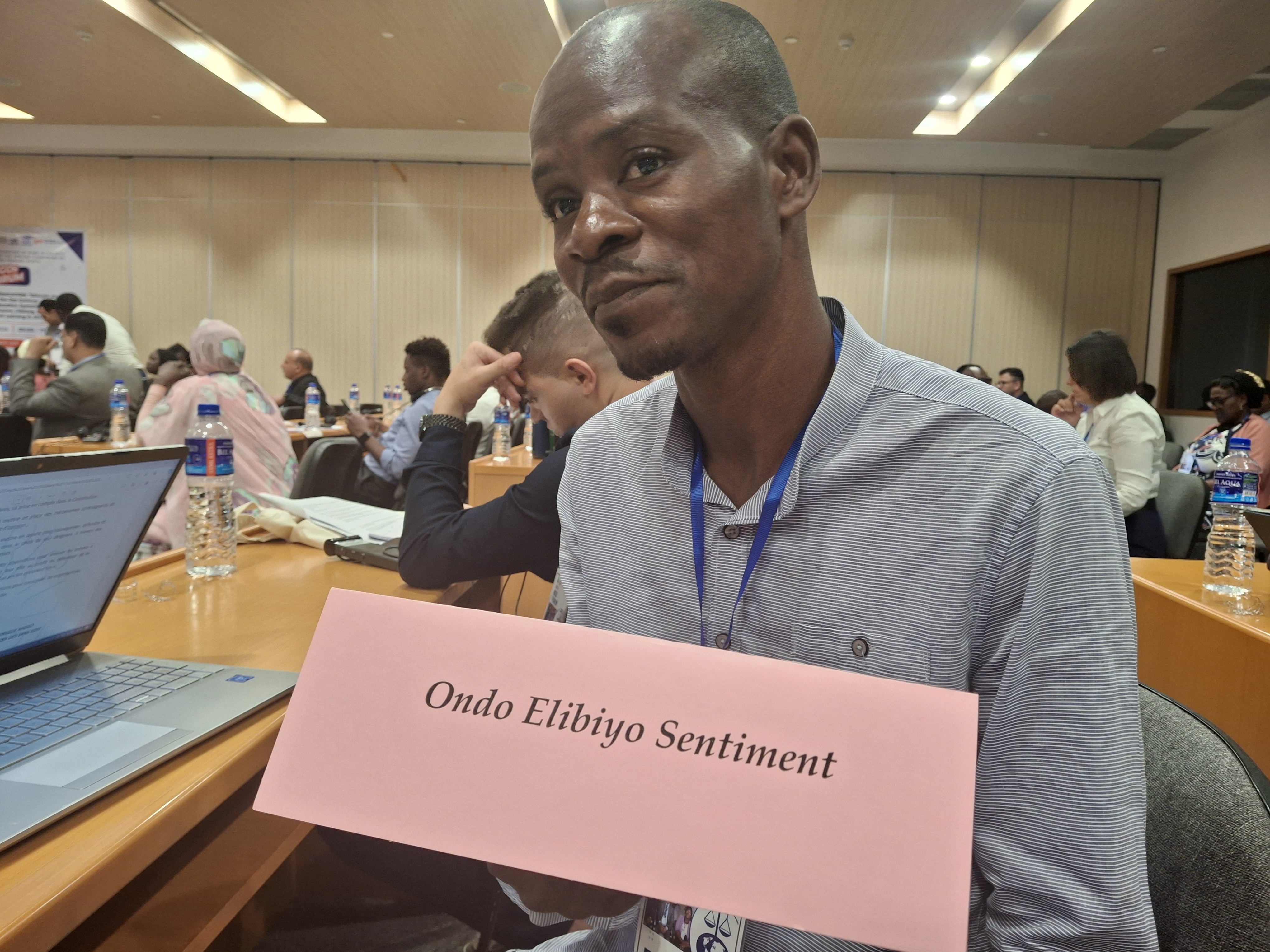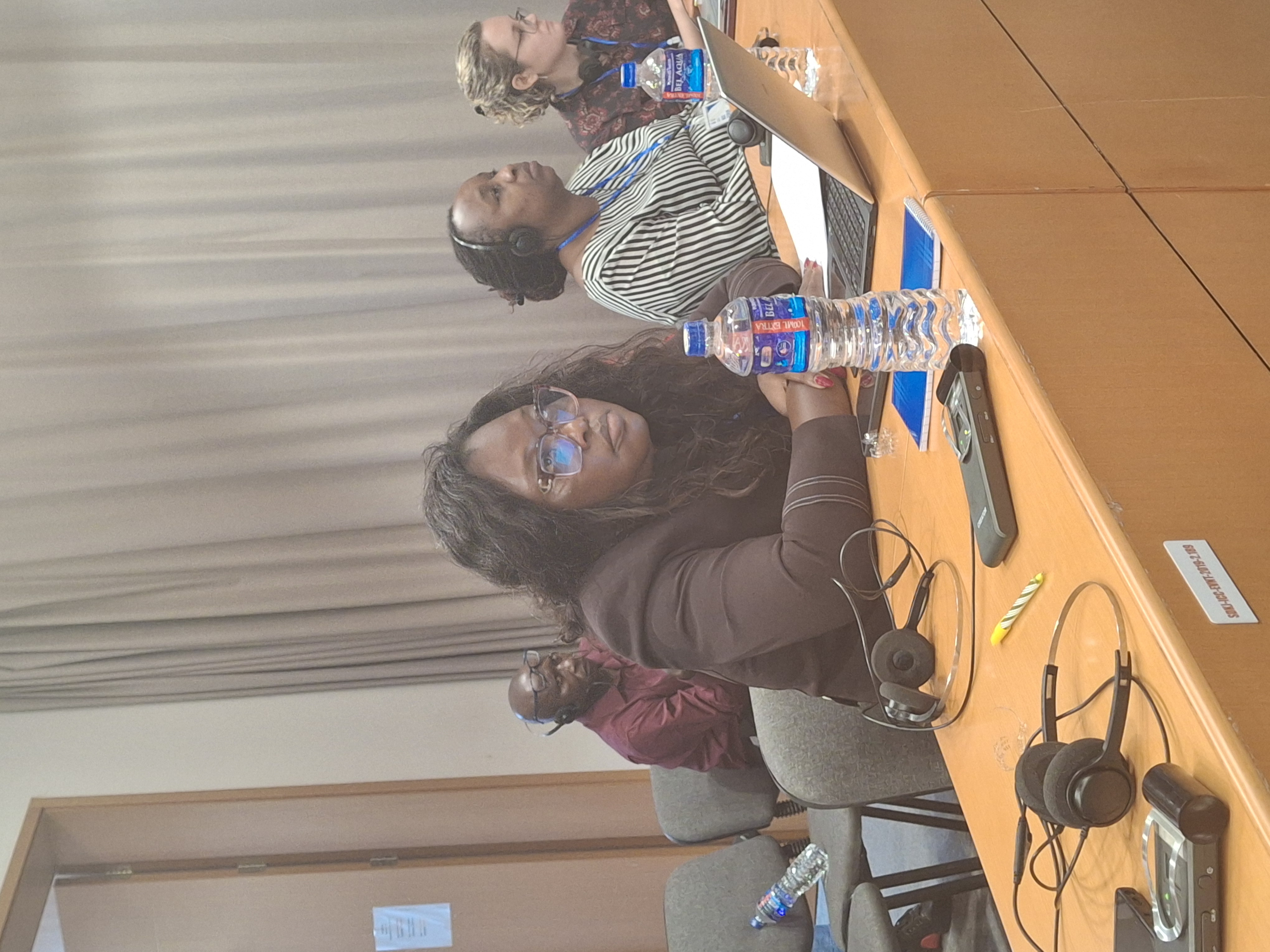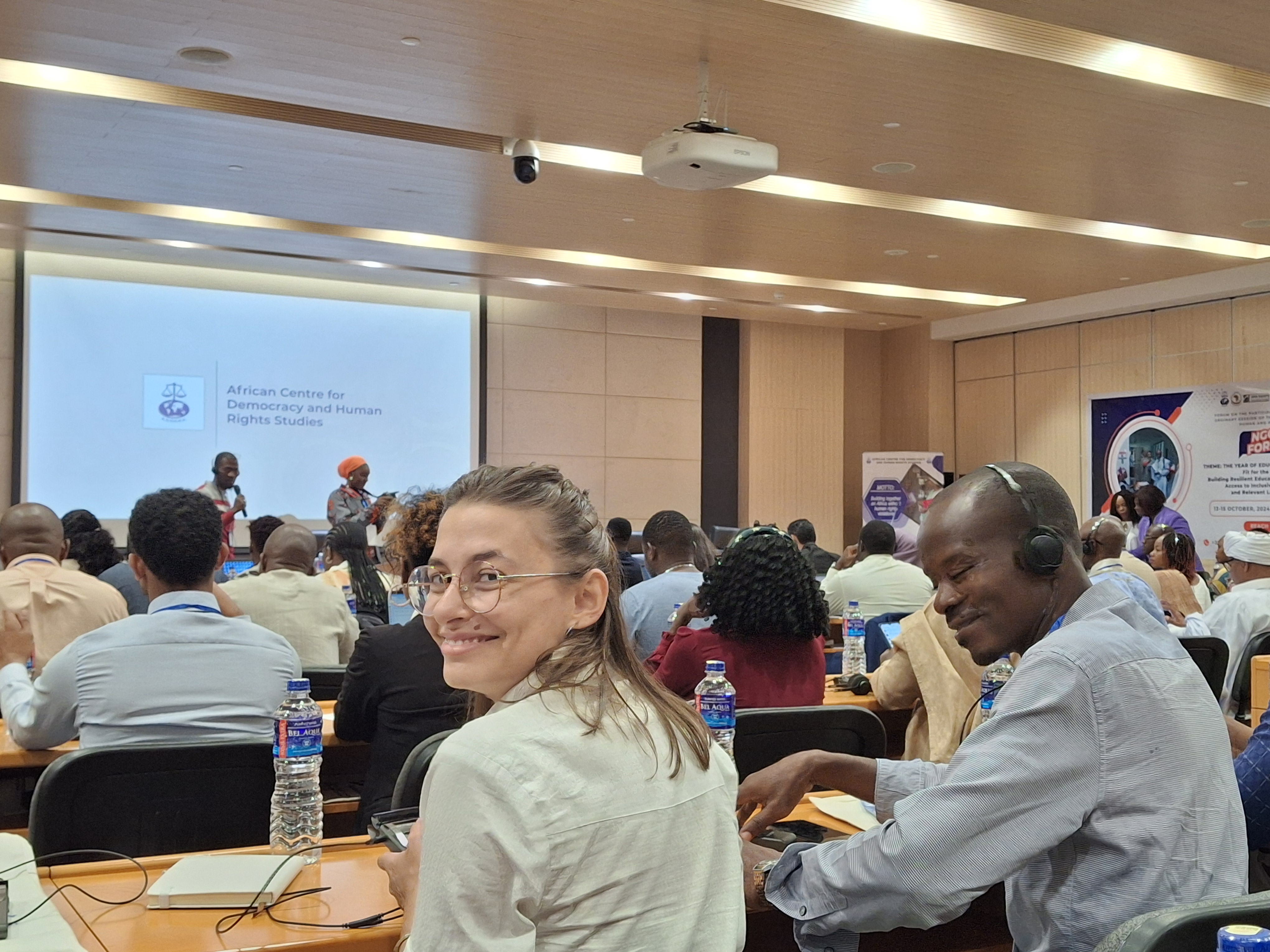Members of Tournons La Page took an active part in the Non-Governmental Organization (NGOs) Forum held in Banjul, Gambia, from October 13 to 15, 2024. Invited to speak by SOS Information Juridique Multisectorielle (SOS-IJM) based in the Democratic Republic of Congo, Koffi Rodrigue Amedonou, member of Tournons La Page Togo (TLP-Togo), was unable to attend for scheduling reasons. However, it was Sentiment Ondo Elibiyo, TLP-Gabon coordinator, who brilliantly took his place on the panel dedicated to “Protecting civil liberties”, covering freedom of the press, freedom of assembly and freedom of expression. In a powerful plea, Sentiment Ondo Elibiyo denounced the many obstacles to press freedom and the critical state of governance in West Africa.
A fundamental right constantly flouted
Despite the international legal protection of press freedom, enshrined in texts such as the Universal Declaration of Human Rights, the African Charter on Human and Peoples' Rights, the European Convention on Human Rights and United Nations General Assembly Resolution A/RES/59 adopted in 1946, the reality on the ground is quite different. Ondo Elibiyo denounced the repeated attacks on journalists in the region. According to UN Secretary-General Antonio Guterres, 71 journalists were killed in 2023, describing the year as “devastating” for the profession.
Despite the commitments of West African states to guarantee this freedom, the facts demonstrate the opposite: arrests of journalists, Internet blackouts, restrictive laws, and the use of PEGASUS spyware to track down critical media. Koffi Rodrigue Amedonou, through the voice of Sentiment Ondo Elibiyo, revealed that he has been a victim of this spying system since 2022, illustrating the seriousness of the repression.
Liberticidal laws and media repression
Although protected on paper, West African journalists are subject to draconian laws. “Press freedom was put to the test in West Africa in 2023, with the adoption of liberticidal laws designed not only to challenge the decriminalization of press offenses, but also and above all to restrict journalists' freedom to exercise their profession. We can cite as liberticidal laws the law on digital technology, the law on cybercrime and cyber security, the law on internal security, the law on terrorism and violent extremism”, declared Sentiment Ondo Elibiyo. These laws, under the guise of national security, have become tools of repression against dissenting voices. He denounced this phenomenon, recalling that states in the region are adopting these dangerous practices to reduce civic space to nothing.
Press freedom and good governance: an inseparable link
The TLP-Gabon coordinator also highlighted a fundamental correlation between press freedom and good governance. In countries like Ghana and Nigeria, where the press is freer, governance is considered more transparent and democratic. On the other hand, in many French-speaking countries, governance is marked by repression, constitutional manipulation and the consolidation of power by elites, some of them military. The example of Togo in 2005, where the army imposed dynastic succession after the death of the president, illustrates the anti-democratic excesses that persist in the region. In his view, the weakness of governance in these countries is linked to the systematic repression of journalists and the manipulation of public institutions.
The press under pressure: a fragmented profession
Journalistic repression has led to a fragmentation of the profession into four categories, as Sentiment Ondo Elibiyo explained:
- Pro-power journalists, loyal to the current regime.
- Opposition journalists, who denounce abuses of power and corruption.
- Centrist journalists, who avoid sensitive subjects.
- Journalists who defend their patrons, often linked to figures in the political or economic elite.
This division of the press, accentuated by economic insecurity, drives many journalists to self-censorship, a further obstacle to the emergence of transparent, democratic governance.
Calls to action: what can be done?
To remedy this worrying situation, Ondo Elibiyo launched several appeals:
- To the African Union and ECOWAS, to set up binding mechanisms to guarantee the protection of journalists and civil liberties.
- To a reform of regional treaties, to impose presidential term limits, essential to ensure peaceful democratic transitions.
- Civil society to continue defending freedom of expression and the press, despite growing pressure.






.png)










